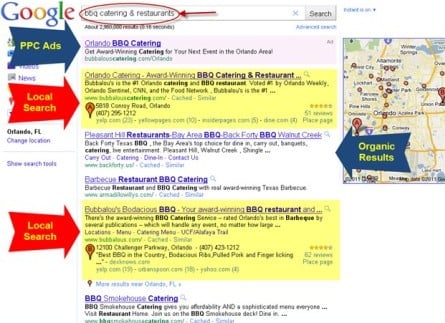Effective Search Engine Optimization: Part 2

 Part 2 of our series on Effective Search Engine Optimization focuses on the importance of a Keyphrase Analysis and what needs to be included in it. A Keyphrase Analysis is a market research project using a specific software tool or service to identify all the keyphrases that people are using today to search for your products and services via search engines such as Google, Bing and Yahoo.
Part 2 of our series on Effective Search Engine Optimization focuses on the importance of a Keyphrase Analysis and what needs to be included in it. A Keyphrase Analysis is a market research project using a specific software tool or service to identify all the keyphrases that people are using today to search for your products and services via search engines such as Google, Bing and Yahoo.
Evaluate Your Current Website Traffic
The first part of an analysis evaluates the keyphrases people are using to find and visit your website in the past 12 months. Any good website statistics package such as Adobe’s (formerly Omniture) Site Catalyst, Web Trends, DeepMetrix, Google Analytics, etc. have this capability.
While it is helpful to analyze this data, it does not tell you the other keyphrases people are trying to use to find your products and services or the keyphrases that you are not ranking for in the search engines. This missing information is significant to driving traffic and revenue for your business.
Internet Marketing Questionnaire
At Xcellimark, we use a tool that we developed for our prospective clients called an Internet Marketing Questionnaire to help us fully understand your online goals, products and services, competitors, and industry, among other things that we use as inputs to the keyphrase analysis. For us, this information is critical to conducting the analysis and identifying all the related keyphrases to be analyzed for your business.
Keyphrase Analytical Tools
Once you have analyzed your website traffic and identified all the inputs to conduct the market research, you need to use a keyphrase analysis tool that will identify all the keyphrases that people are using today to find your products, services and your competitors.
There are many tools in the market place: some are free, such as the Google Keyphrase Estimator, and some are subscription-based such as WordTracker, Keyword Discovery and many others. It is important to know the sources of the data in the databases that these tools pull from and how often the data is updated.
Filtering the Keyphrase Data
The data that you are interested in pulling includes the most relevant keyphrases, the search volume for those keyphrases, how competitive each keyphrase is and then average Pay Per Click cost if you are considering a PPC advertising or marketing campaign. You will want to make sure you evaluate all keyphrases, whether they are a very broad term or a very specific keyphrase term, and the seasonality aspects of each keyphrase.
Next, you will need to categorize each of the keyphrases into groups that are about the same thing and then prioritize these groups and keyphrases according to what is most relevant to your products and services and what is most important to your marketing efforts. If you are considering a PPC Advertising campaign, we suggest running a ROAS model (Return on Advertising Spend) to identify the most profitable keyphrases for advertising.
Keyphrase Selection
Once your keyphrases are grouped and prioritized, it is important that you identify which group and related keyphrases you want to target for your search engine optimization or SEO efforts. Typically, you will want to optimize your primary website pages for only one keyphrase group of closely related keyphrases. There are exceptions to this rule, but this is a good general rule of thumb.
There is always a temptation at this point to go after very broad key






